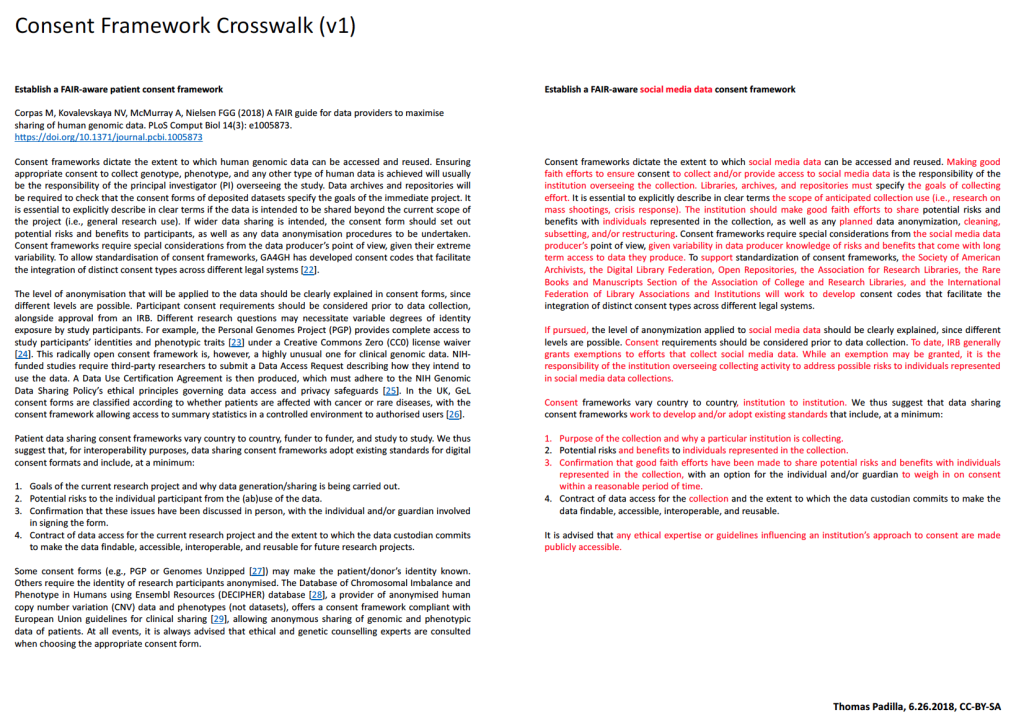Yesterday Lisa Federer shared a link to A FAIR guide for data providers to maximise sharing of human genomic data. As I read through the paper I was reminded of ongoing difficulties we have in the cultural heritage community addressing consent in the context of social media data collections. Bergis Jules has written on this some, suggesting that we might learn something from the deed of gift. The paper in question provides five tips for sharing human genomic data in line with the FAIR Principles.
My attention was drawn to “Tip 1 – Establish a FAIR-aware patient consent framework”. I wondered if it could be crosswalked and morphed into something germane to the cultural heritage community context. What follows is an attempt to do that. The exercise is guided in part by own experience building the October 1 Mass Shooting Twitter data collection at the University of Nevada Las Vegas. Policy development for this collection and collections like it is ongoing. There was no specific policy to guide collecting Twitter data in the aftermath of October 1. Preliminary takeaways expressed in the crosswalk represent an intention to do better moving forward.
Tangling with the questions of consent and access, in this case, are necessarily an act of remediation.
Consent Framework Crosswalk (v1)
